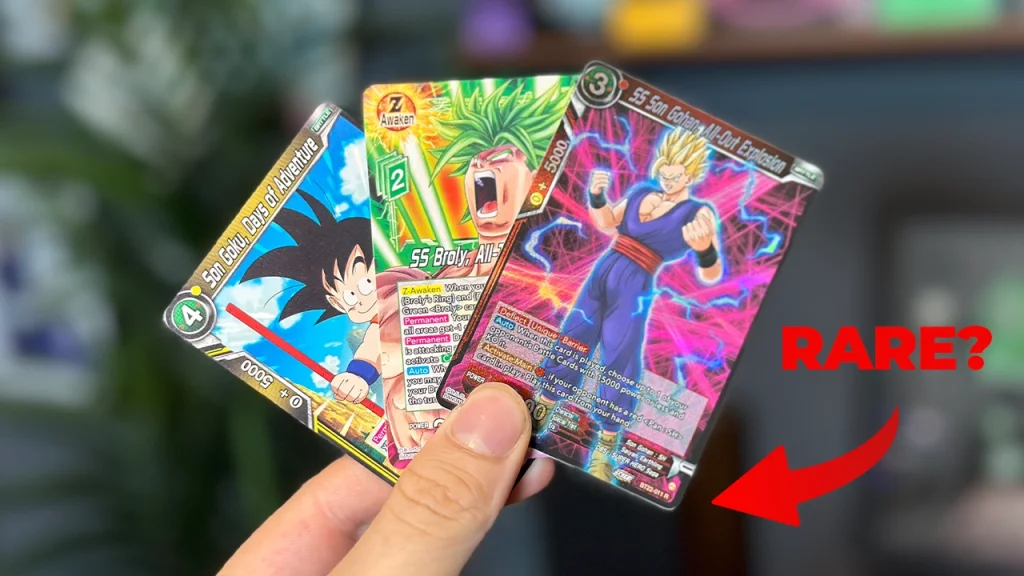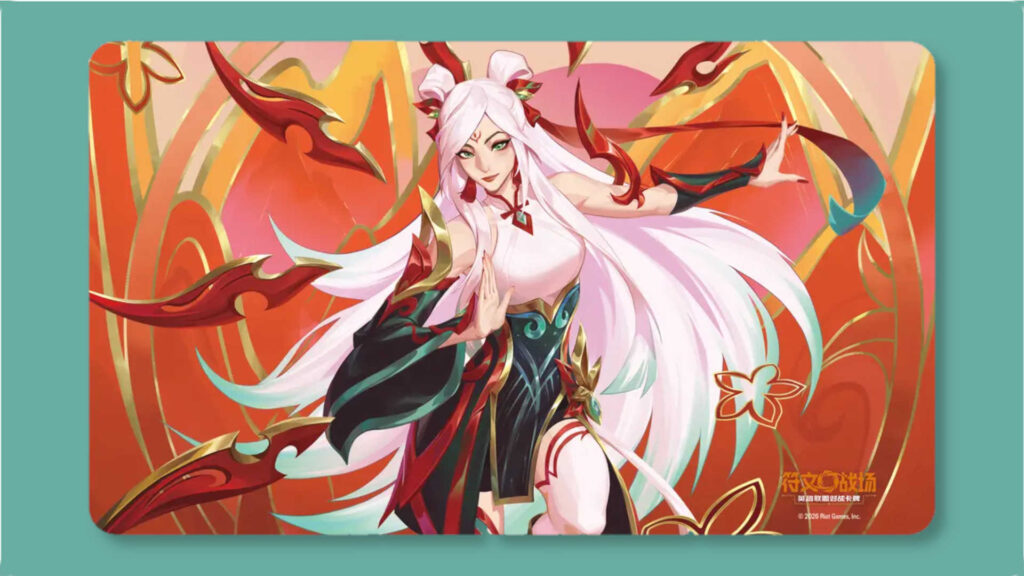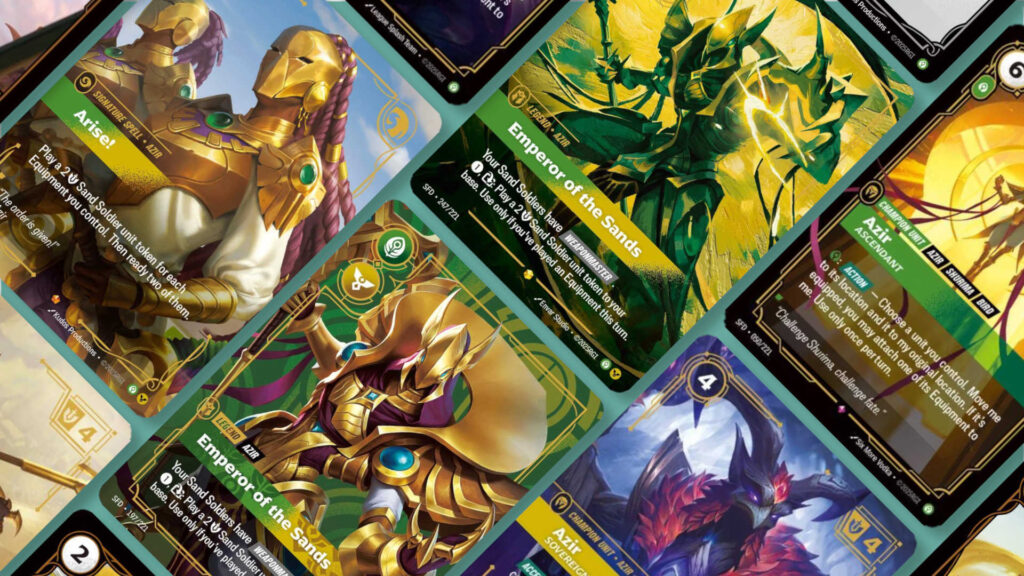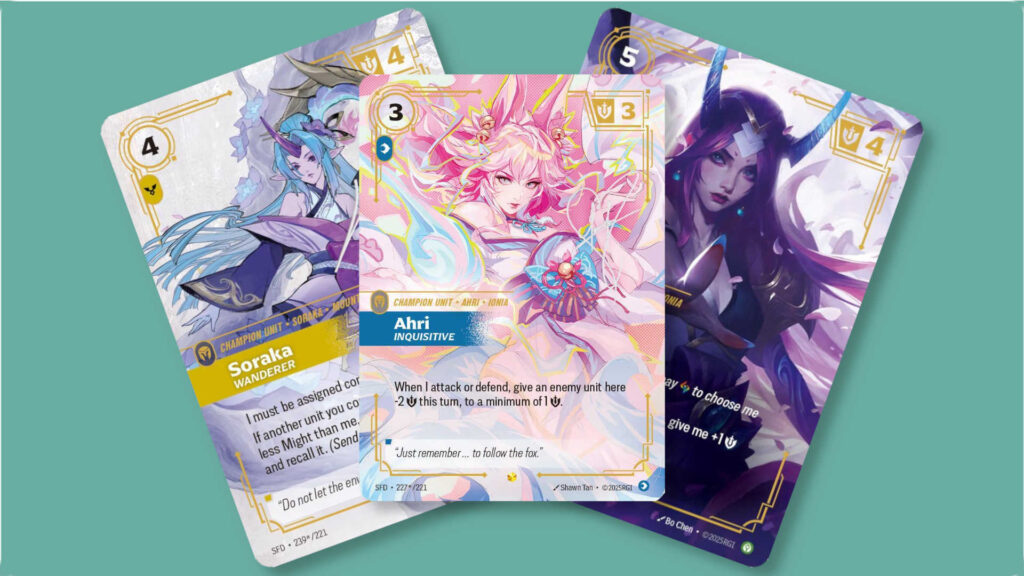The Dragon Ball Super Card Game is the latest CCG (Collectable Card Game) to feature Goku and his extended cast of family, friends and enemies.
Whether you’re new to collectible card games, having been drawn in by Dragon Ball Super itself, or a fan of these games who just needs to know what each cards’ rarity level is, what it means and how to identify them, we’ve got you covered!
Most CCGs and TCGs keep things relatively straightforward, with Common, Uncommon and Rare cards being the bulk of what you can expect in a booster pack.
Usually, most cards will be at the Common rarity level, followed by a smaller number of Uncommon cards, then an even smaller selection – sometimes only one – Rare or higher card in each booster pack.
That last designation – Rare or higher – is where things can get a little complicated and confusing, which is why we’re here to help you sort your Special Rares from your Secret Rares.
We’ve also highlighted exactly where you can find the card’s rarity designation for each type of rarity too.
Table of Contents
ToggleCommon
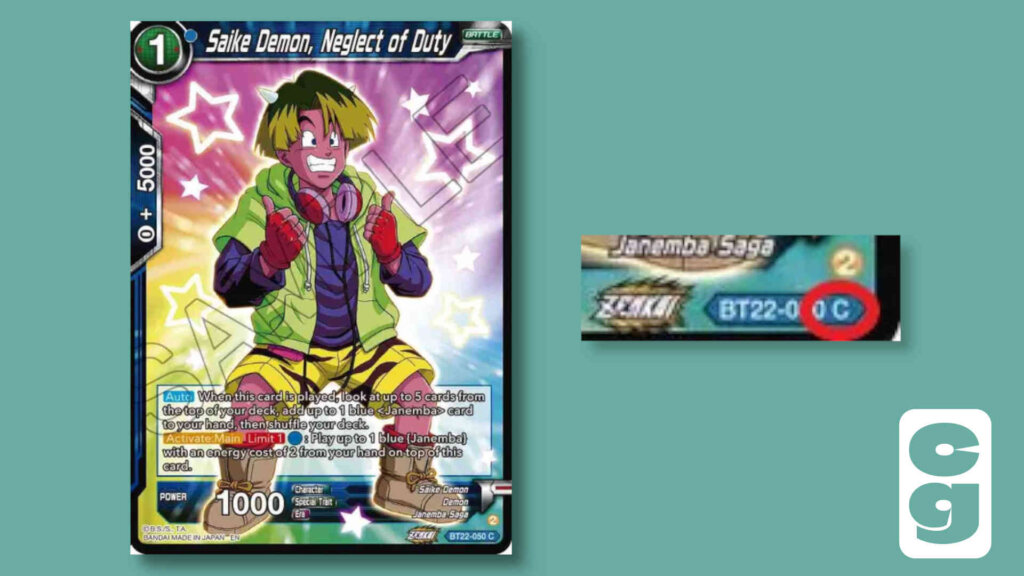
As mentioned above, the majority of cards in a booster pack – which contain 12 cards each – will be at the Common rarity level.
These cards are often ones that are ignored or dismissed by collectors – generally having little to no resale value.
However, given that there’s a decent number of these in every booster pack, these will be the bulk of the cards in any given player’s collection – and, in theory, should form the majority of any given deck too!
Common cards won’t be especially powerful, but will usually have support or setup functions, helping to keep strategies going or started in-game.
You can identify Common cards by the C in the bottom right of the card, next to the card’s set number – as we’ve highlighted above.
Uncommon
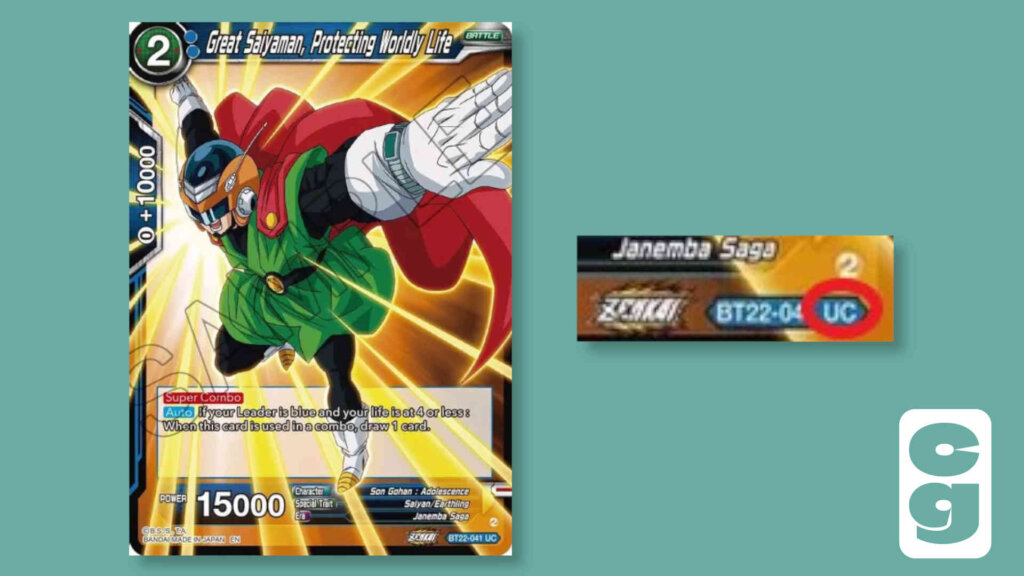
Though you’ll still find multiple Uncommons in a booster pack, you will – as you’d expect – get less of these than Commons in general.
Uncommons are identified by a UC in the bottom right of the card, next to the card’s set number and will, very occasionally, have some foil on the card.
In terms of desirability, you can sometimes see certain Uncommon cards become more valuable than you’d expect – they’ll pop up as stalwart cards in decks more often and in a more useful capacity than most Common cards you’ll come across.
Though they won’t be the most sought after cards, Uncommons will often be the most important cards from a support point of view – they’re in your deck to back up your biggest hitters, which will be the cards we cover next!
Rare
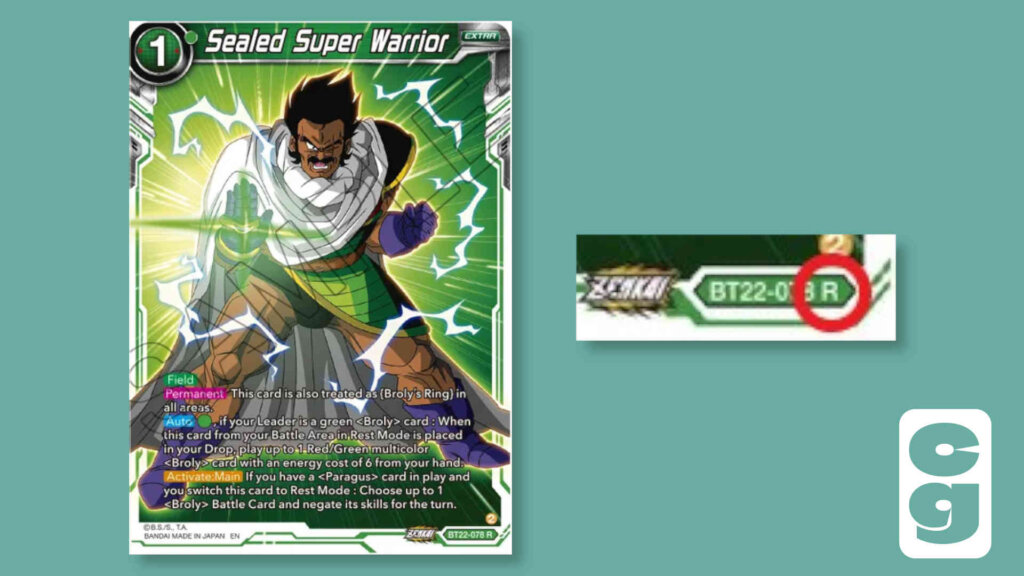
Here’s where things start to get really interesting.
Generally, you’ll only have one Rare card per booster pack – though you can also expect to find cards at a higher level of rarity instead of a Rare too.
Rare cards will typically be powerful characters or attacks that you’ll base an entire deck’s strategy around.
Though Rare by name and nature, they’re still not as scarce or difficult to pull from booster packs as cards at higher rarity levels, so it wouldn’t be unusual to see players using multiple copies of the same Rare card in a deck, if it makes sense to do so.
You can identify a Rare card by the R in the bottom right – again, as with all other rarity types, it’s to the right of the card’s set number.
All Rare cards feature a foil treatment – though the style of this will vary dependent on the card and the set it’s a part of.
Super Rare
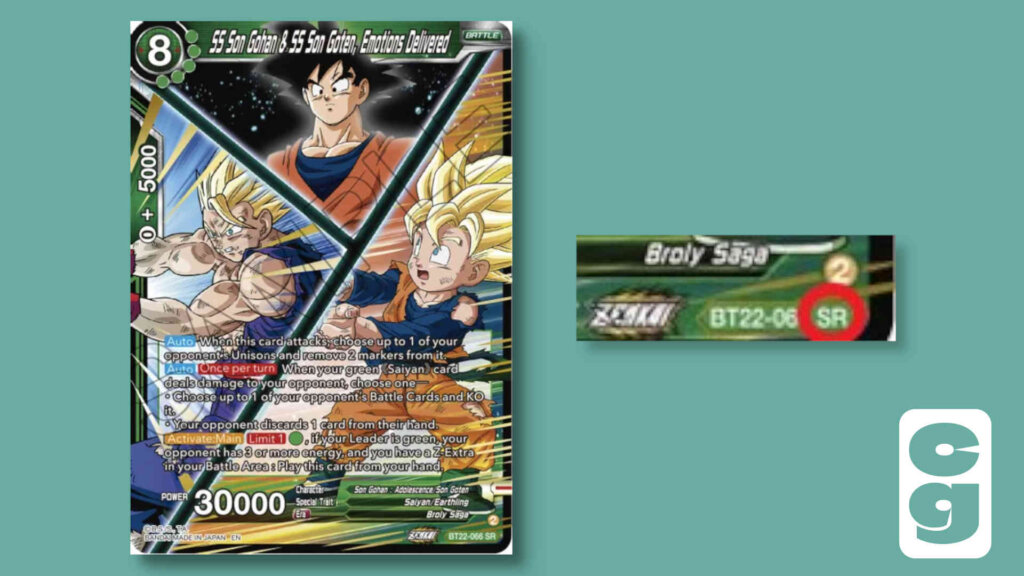
An SR in the bottom right of the card will let you know that you’ve got a Super Rare card – along with its foiling and special texture on the card, making them look and feel even more special – and they’re aptly classified, as you won’t come across many of these cards!
In fact, you could open multiple boxes of booster packs and not find a single one of these – they used to be found in around 1 in every 4 booster boxes.
With each booster box containing 24 booster packs, you can see why these are an exciting find if you get one.
Though they’re a little more common in recent sets, they’re still a thrilling pull given their power, as well as their value to collectors.
In terms of gameplay, these cards will be even more powerful than Rare cards – you won’t have access to many of them, if any (unless you have an awful lot of money to spend on cards of course!) – but if you do have one of these and manage to get it into play, it’ll very likely swing the game significantly in your favour.
Special Rare
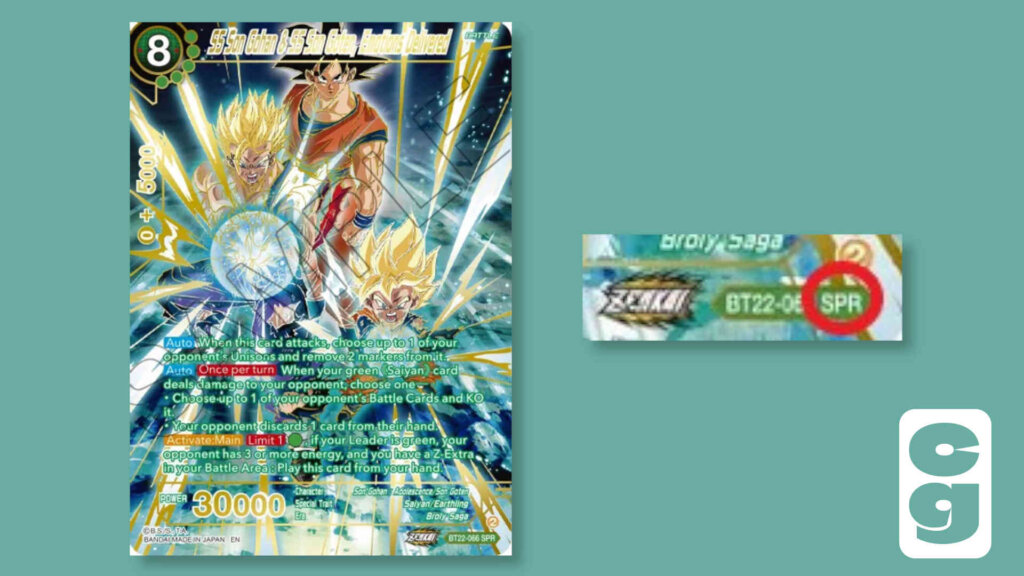
You could be forgiven for thinking you have a Super Rare card if you find a Special Rare; in fact, one of the only ways to tell is the SPR in the bottom right of the card.
That’s because Special Rares are alternate art versions of Super Rare cards; if you have a Super Rare with the same name as a Special Rare, in terms of its gameplay abilities and even set number, it’ll be identical.
What better way to illustrate that by using two versions of the same card?
If you take a look at our Super Rare card image, you’ll note that the Special Rare is the alternate art version of the very same card.
They’ll usually be found at the rate of 1 in 2 booster boxes – as such, they can be pretty expensive to buy if you’re checking out online sellers on sites such as eBay.
Secret Rare
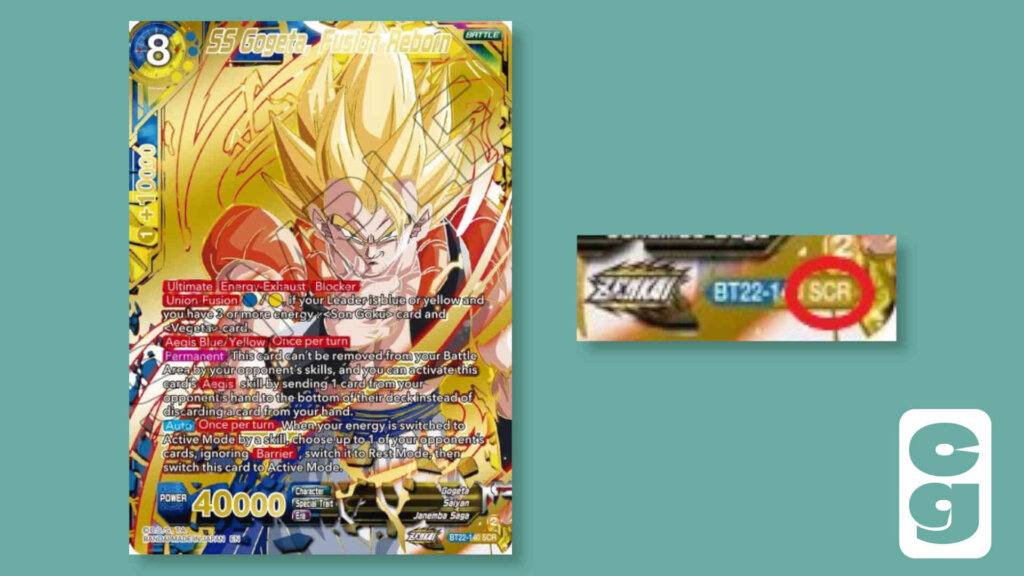
If the bottom right of a card shows an SCR, congratulations – you’ve found a Secret Rare!
So, these are now as rare in terms of pull rate as Super Rares once were; Secret Rares can be found at the rate of roughly 1 in 4 booster boxes.
However – also note that the scarcity of each Secret Rare massively varies too. So though you might find a Secret Rare in 1 in 4 booster boxes, the likelihood of finding specific cards may be much, much lower!
In terms of their in-game usefulness, Secret Rares are well worth waiting for.
They’re often hugely powerful, game changing cards.
As for their value to collectors on the secondary market – well, Secret Rares can be the most valuable cards in many sets.
Just check out our list of the most valuable Dragon Ball Super: Critical Blow cards to see several examples!
God Rare
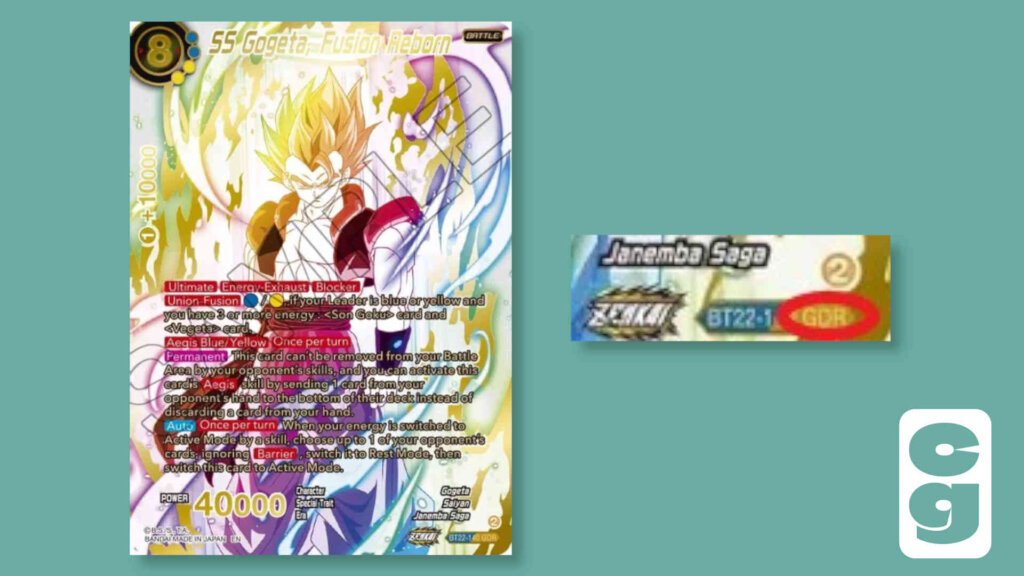
The final rarity you can find in a standard booster is the God Rare, only a few of which exist in the Dragon Ball Super game overall.
Multiple God Rares can be found on our most valuable Dragon Ball Super cards list – and, as you’ll see from that article, many of them are valued at pretty eye-watering prices!
That’s mostly due to just how scarce these cards are, as well as the phenomenal art and incredibly strong in game abilities they have.
Though I’d be very surprised if you ever see these turn up in a deck, given how much they can be worth!
So just how rare are God Rare cards?
Well, they’re apparently found in 1 in 3 cases of booster boxes.
With each case containing 12 booster boxes and each box containing 24 packs – that’s an awful lot of packs to get through, just for the possibility of pulling a God Rare card!
There are numerous other rarities in Dragon Ball Super, several of which are specific to a certain set – with many not available in booster packs at all.
Promo
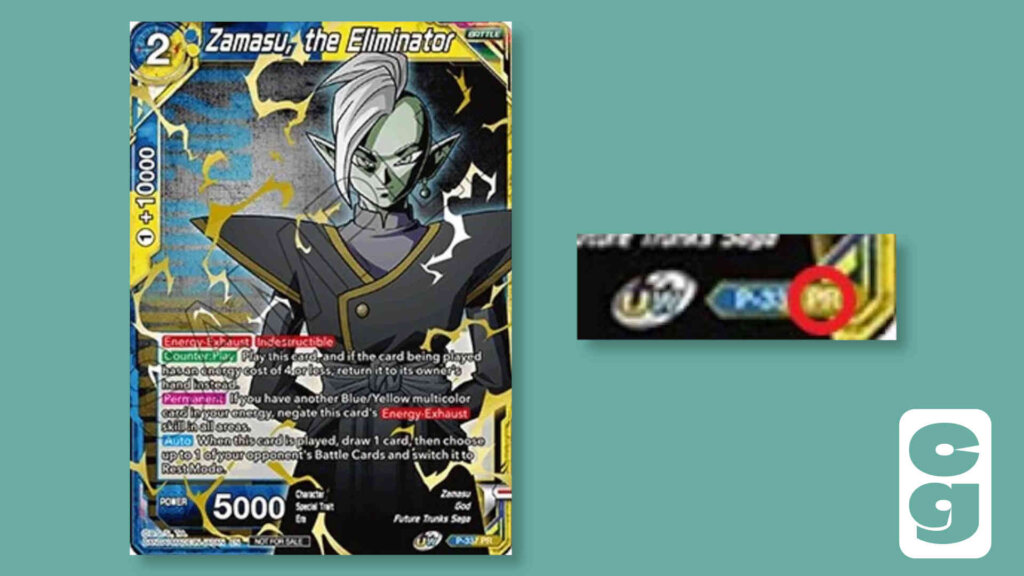
If you win or place highly enough in a Dragon Ball Super tournament, the chances are that – perhaps alongside other rewards – you’ll receive at least one Promo card as a prize.
Sometimes, Promo cards can become incredibly valuable – mostly due to their limited and exclusive nature.
You’ll know you have a Promo card from the PR in the bottom right corner.
Expansion Rare
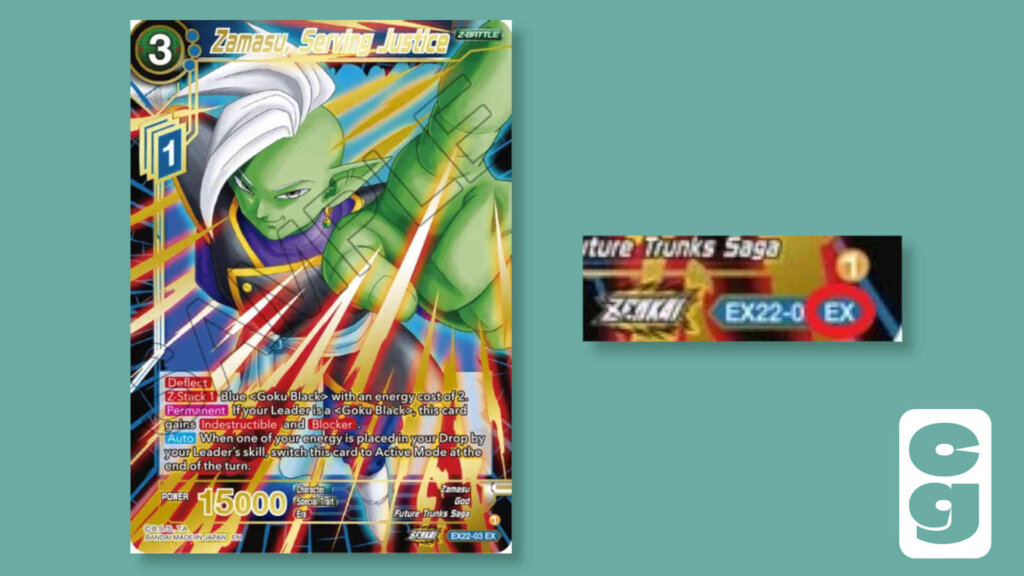
Expansion and Anniversary Packs are where you’ll find cards marked with an EX in the bottom right; these can be foil, but that’s not always the case.
Feature Rare
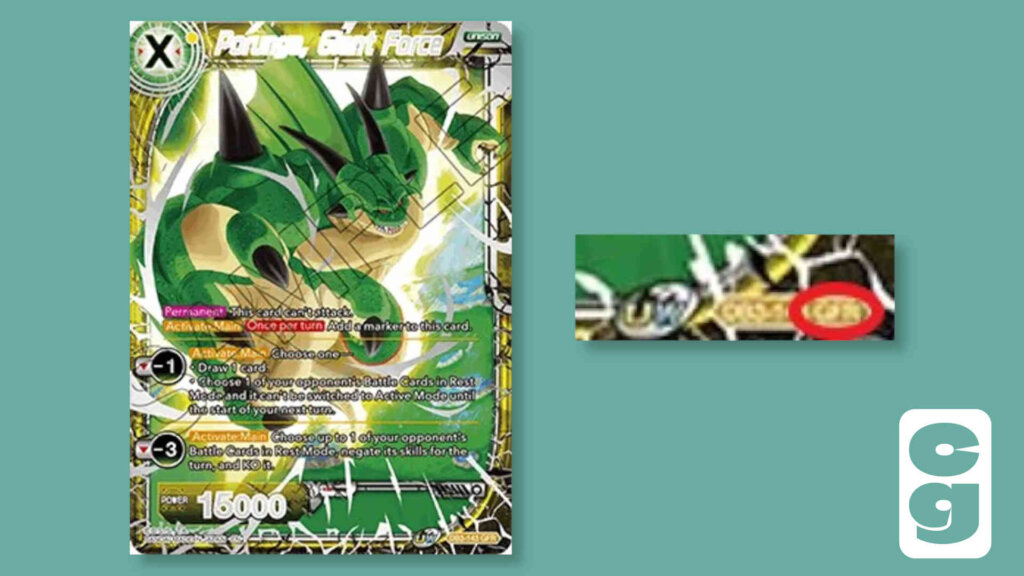
All other Rarity types are specific to certain sets; for example, GFR (Giant Force Rare), which is a rare only found in the Draft Box for Giant Force.
Feature Rare (FR) sounds more general, but is exclusive to Clash of Fates.
Likewise, Special Rare Signature (SPR-S) also sound as if they might be a ‘standard’ rarity, but these cards, featuring the autographs of voice actors from the Dragon Ball anime, only feature in Assault of the Saiyans so far.


